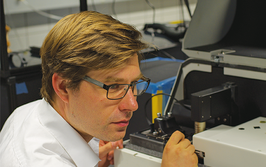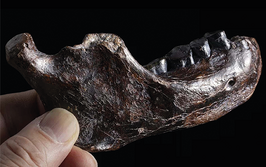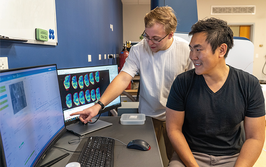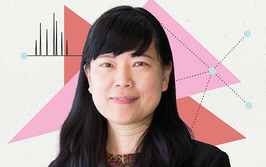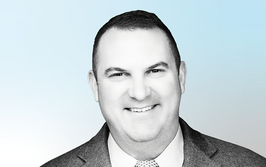A Little Respect
Sitting Down With Ellen Miseo, instrumentation and applications consultant for Analytical Answers and adjunct assistant professor at Bentley University, Massachusetts, USA.
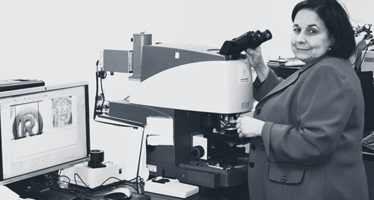
You arranged a session at Pittcon on Women in Spectroscopy. How did that come about?
It came out of a number of things that have happened over the past couple of years. One was that a young woman who’s a member of the Society for Applied Spectroscopy suggested that women needed a place to discuss career paths and so on, and proposed starting a group called SASSY. Another was that at Pittcon 2013, I met up with a group of female friends for lunch. What some of the younger women were saying about life in graduate school horrified me, especially in this day and age. The third was a very engaging article about Phyllis Brown, the first HPLC chromatographer working on complex molecules. She was interviewed by a young female associate professor, and I found the interaction between them fascinating. Lastly, the timing seemed right from a personal perspective: I have a daughter who’s just about to graduate in chemistry and wants to do a PhD, and my son’s fiancée just finished a Masters in chemical engineering.
It stuck me that all of these young women would really benefit from hearing how other women became successful. I wanted to bring together stories to show that academia isn’t the only option, and I wanted them to learn about the challenges that women face.
How did it go?
I was incredibly happy with the session. Attendance was good and many participants agreed that we should do it again next year (a proposal has been submitted to Pittcon). There was also a positive response from some of men that I know, which is when I was sure that it was the right thing to do. Outside of Pittcon, our LinkedIn group, “Women in Spectroscopy”, follows a similar principle, offering a closed forum for women to ask questions and share their views.
You’ve faced gender discrimination yourself. Could you speak about that?
When I was discriminated against, I was blindsided by it. I spent a long time saying to myself, “This can’t be discrimination!” because it had never happened before; every previous position was accompanied by a very positive, professional attitude. But following acquisition of the company I was working for, it was obvious that the new owners were treating women as second-class citizens. They weren’t respected for their knowledge and it was obvious that strong women were not welcome to participate in the business. I could see that it was a problematic and pervasive attitude. It started at the top and no one had ever challenged it.
Does these issues exist in both academic and business settings?
Yes – but in different ways. There have been a lot of studies published on how tenure comes right at the primary childbearing age. Biologically speaking, a woman has to take time off. A man can have a baby, take two weeks paternity leave, and be back in the lab 12 hours a day. A woman can’t do that. In industry, there are other issues: some people question committment and if there are two people vying for the same promotion, underhanded tactics may come into play.
There’s a phrase: if you’re not part of the solution, you’re part of the problem. What can the non-acting majority do to help?
Simple recognition that these things happen would be a good start. And if someone is in a position to call out a colleague, then I urge him or her to do so. People need to be willing to say, “I’m not going to let this happen.”
I don’t think it’s so much training as awareness that is needed. That’s what the unconscious (or sometimes covert) nature of the problem demands. At professional conferences, I’ve seen the tone of a male-only group change when a woman joins the conversation, and it’s happened to me, but it doesn’t seem to be intentional.
Positive discrimination (affirmative action) irks me; meritocracy must be upheld. A big problem is that our society starts discouraging females at a very young age from getting into the sciences. That needs to change and requires a grassroots effort.
If you could change one thing, what would it be?
There needs to be more acknowledgement of the fact that women bring different and valuable perspectives to bear. I’d like to see women receive the same level of attention and respect as their male colleagues.
I don’t really want to be the woman who’s saying that women need to be given more opportunities in analytical chemistry, though I appreciate I’ve indicated that partly here, because you asked! All I’m really trying to do is point out that issues that I thought were long gone are still present. I was the victim of discrimination myself, and I strongly feel that women need to educate themselves that there are still gross inequalities out there. I want them to speak up and stand up for themselves.
Ellen Miseo works in Technology Development for Hamamatsu Corp, but has worked in software development for some years. An expert in FTIR, she is also President of the Society for Applied Spectroscopy.
